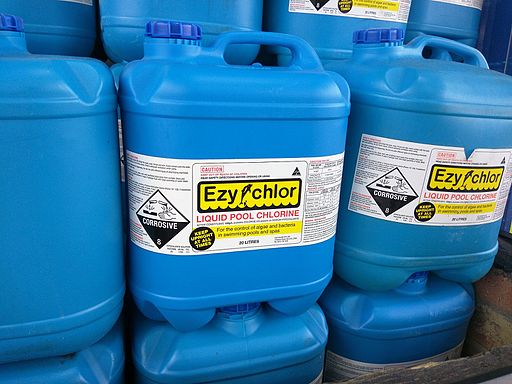Common Chlorine Questions & Answers
April 4, 2022
One of the first big things new pool owners need to learn is how much chlorine to add to a pool. Beginners may regard chlorine as more than a little overwhelming. New pool owners may even think that regularly checking the chlorine levels is an unnecessary burden. Learning the most effective ways to properly measure and apply chlorine is a crucial step in keeping a pool sanitized and free of any algae.
Having doubts while going through the process for the first time is understandable. Set aside some time to grow familiar with what every pool owner needs to know to manage their pool.
What is Chlorine?
Adding chlorine chemicals to pools helps prevent the spread of bacteria. Chlorine kills the pool’s germs when added to the water in correct doses. The bottom line is that chlorine is what makes us stay healthy and safe when we swim in public and private pools. Properly applying chlorine will minimize the risk of any swimmers getting sick from or transmitting diseases through the water.
How Much Chlorine Should Pool Owners Use?
There is not a solitary measurement or rule for how much chlorine to add to a pool. What new pool owners should remember is, testing the pool’s chlorine levels determines how much they should add. Pool owners can purchase test strip kits from pool supply stores or online stores. The reason why these kits are necessary is that multiple factors can influence a pool’s chlorine levels. When chlorine mixes with body lotions, urine, or environmental elements, it causes a reaction. Using these kits to measure chlorine levels will eliminate any uncertainty when it comes time to balance these discrepancies.
What Does Chlorine Cost?
Chlorine costs have fluctuated over the past couple of years. The cost of the product will depend on what form the buyer selects when purchasing it. The most cost-effective forms include liquid chlorine and chlorine tablets. Liquid chlorine costs range from $7 to $10 per two-gallon jug. Pool owners can expect to pay between $60 and $70 for a 25-pound bag of chlorine tablets.
How to Add Liquid Chlorine
Residential pool owners and pool service professionals are strong proponents of using liquid chlorine in pools. Pool owners can directly apply certain liquid chlorine twice weekly. Owners can apply it by using a liquid feed system. Many people favor liquid chlorine because it is a more pure sanitizer. The sanitizer is also more environmentally friendly than chlorine tablets.
Other benefits of liquid chlorine are:
- Pool owners can handle the chlorine with more safety.
- It provides the most cost-effective pool management option.
- It does not include Cyanuric Acid, which at high levels can affect the efficacy of chlorine.
New pool owners who are also new homeowners will also likely prefer to use liquid chlorine. The sanitizer helps ensure a longer-term, higher quality for the pool water, plaster, and tile. A first-time pool owner who may have just bought their first home will want to minimize repairs around the property. Using liquid chlorine may be one way to ensure that any home repair payments are necessary rather than redundant and avoidable.
What is the Chlorine Breakpoint?
Understanding the chlorine breakpoint will enable pool owners to fully grasp the chemistry of maintaining a pool. Pool owners reach the chlorine breakpoint once they have added enough chlorine to the water to meet the disinfection demand. Achieving the chlorine breakpoint is in essence when owners have removed all the unwanted contaminants from the pool water. Remember that pool owners should not simply dump in the chemicals after determining how much chlorine to add to a pool. If applying a higher concentration of chlorine, first dissolve the chlorine in a bucket of pool water. Afterward, distribute the chlorinated water in the pool.
If you have more questions on pool chemicals or chlorine specifically, we recommend you contact your local pool professional. You can also check up on our blog from time to time for more helpful pool maintenance tips. If you’re looking to install a pool in the near future, you should also check out our made in the USA top-quality pool slides, handrails, and inground pool ladders.

